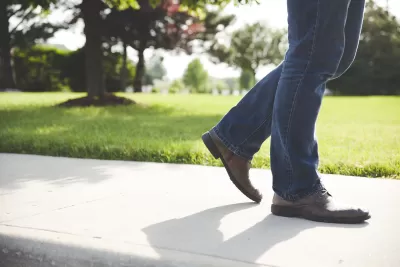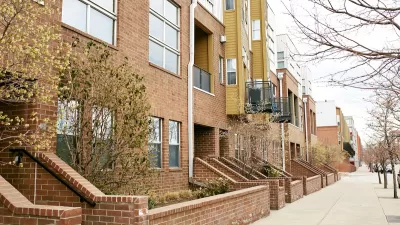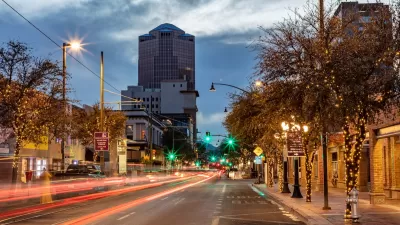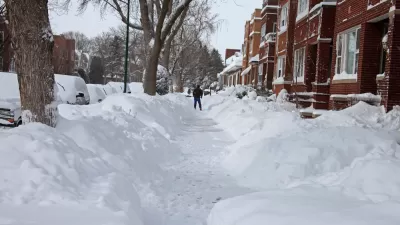In theory, sidewalks are what make cities walkable. But in Washington, D.C., many sidewalks are not accessible to the people who use them.

Barbara Moreno writes about Project Sidewalk, an online crowdsourced accessibility audit of sidewalks in Washington, D.C. Volunteers reported sidewalk obstructions on almost 1,500 miles of city sidewalks, and an interactive map shows the results. Sidewalk accessibility was most often impeded by obstructions such as trash cans, notes Moreno. A lack of curb ramps and surface problems—a broken pavement, for example—were the other most common impediments.
The most issues were located around the National Mall. The findings also show that sidewalk obstructions were not limited to less affluent neighborhoods: half of neighborhoods with the most obstructions were in high-income D.C. neighborhoods.
The Project Sidewalk findings illustrate how the presence of sidewalks does not automatically mean neighborhoods are walkable and accessible. "For parents pushing babies around in strollers, a big crack in a sidewalk can be an unwelcome nuisance. For wheelchair users and others with limited mobility, obstructions like these can make a sidewalk almost entirely inaccessible. A city is only as accessible as its sidewalks. And access to quality sidewalks is paramount for all people walking," says Moreno.
FULL STORY: A city is only as accessible as its sidewalks. This map shows DC’s are often blocked.

Alabama: Trump Terminates Settlements for Black Communities Harmed By Raw Sewage
Trump deemed the landmark civil rights agreement “illegal DEI and environmental justice policy.”

Study: Maui’s Plan to Convert Vacation Rentals to Long-Term Housing Could Cause Nearly $1 Billion Economic Loss
The plan would reduce visitor accommodation by 25% resulting in 1,900 jobs lost.

Planetizen Federal Action Tracker
A weekly monitor of how Trump’s orders and actions are impacting planners and planning in America.

Waymo Gets Permission to Map SF’s Market Street
If allowed to operate on the traffic-restricted street, Waymo’s autonomous taxis would have a leg up over ride-hailing competitors — and counter the city’s efforts to grow bike and pedestrian on the thoroughfare.

Parklet Symposium Highlights the Success of Shared Spaces
Parklets got a boost during the Covid-19 pandemic, when the concept was translated to outdoor dining programs that offered restaurants a lifeline during the shutdown.

Federal Homelessness Agency Places Entire Staff on Leave
The U.S. Interagency Council on Homelessness is the only federal agency dedicated to preventing and ending homelessness.
Urban Design for Planners 1: Software Tools
This six-course series explores essential urban design concepts using open source software and equips planners with the tools they need to participate fully in the urban design process.
Planning for Universal Design
Learn the tools for implementing Universal Design in planning regulations.
Caltrans
Smith Gee Studio
Institute for Housing and Urban Development Studies (IHS)
City of Grandview
Harvard GSD Executive Education
Toledo-Lucas County Plan Commissions
Salt Lake City
NYU Wagner Graduate School of Public Service





























